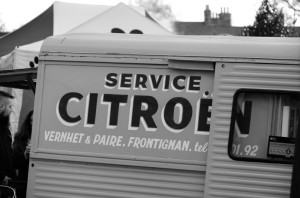The Alcohol Wholesaler Registration Scheme (AWRS)
HMRC has introduced AWRS in order to tackle what it perceives to be significant alcohol fraud. If a business sells alcohol to another business it may need to apply to register for the scheme. HMRC will also, at the time of application, make a decision on whether the relevant person is “fit and proper” to trade wholesale. If it is not, it will be not be permitted to trade at all.
If a business is an existing alcohol wholesaler, or a person starts a new business before 1 April 2016, it is required to apply online for registration between 1 January 2016 and 31 March 2016. This is very important since new criminal and civil sanctions will be introduced for both wholesalers and trade buyers caught purchasing alcohol from non-registered wholesalers. Penalties for wholesalers trading without having submitted their application to HMRC will start from 1 April 2016. Penalties for trade buyers who buy alcohol from unregistered wholesalers will start from 1 April 2017. Any alcohol found in the premises of unregistered businesses may be seized whether or not the duty has been paid.
If a new business is started after 31 March 2016, it must apply for registration at least 45 days before it intends to start trading. It must wait until it gets approval from HMRC before it starts trading.
From 1 April 2017, if a business buys alcohol to sell from a UK wholesaler, it will need to check that whoever it buys from has registered with HMRC and has an AWRS Unique Reference Number (URN). HMRC will provide an online look up service so that trade buyers can ensure the wholesalers they buy from are registered
Who needs to apply to register for AWRS?
A business must apply for approval if it is established in the UK and supplies alcohol to other businesses at, or after, the point at which Excise Duty becomes due by either:
- selling – this includes to other businesses as well as to the general public
- arranging the sale
- offering or exposing for sale
Reminder: If a business is affected by AWRS it will have to apply for it or face penalties for trading without approval.
This flowchart should be of assistance in determining whether a business is required to register for AWRS.
Exclusions to the scheme
- If a business only sells alcohol to the general public and not to other businesses it will not need to apply
- Also, the scheme doesn’t apply to individuals purchasing alcohol from retailers for their own use.
- Businesses which are mainly retailers, but unknowingly or unintentionally make occasional trade sales of alcohol are excluded from AWRS. This can happen if the purchaser is unknown to a business and the only indication you might have that the purchase is being made for commercial purposes is if a tax invoice is requested. These sales are known as ‘incidental sales’.
- Wholesale sales of alcohol between members of the same corporate group are excluded from the scheme and there is no need to register for AWRS to cover these sales (however, if wholesale sales are made outside of the corporate group the companies involved in those sales will need to register).
This incidental sales exemption decision making flowchart will be of assistance.
How to apply for registration
You should apply online using the AWRS service. You’ll need to have a Government Gateway ID to apply.
Pre-registration
We advise that a business prepares for registration by:
- ensuring its business records are in order and accessible
- reviewing its processes and supply chains to ensure that it is sourcing only legitimate alcohol
- introducing a corporate due diligence policy and procedures to prevent involvement in the illicit market
We can assist with any aspect of this preparation.
Processing
HMRC has announced that because of the large number of applications which are expected, it might be several months before you’re given a decision. So a business has a tight deadline, but HMRC has excused itself from dealing with applications in a timely manner.
Post-application
When HMRC receive an application they will check it has been completed correctly. If it’s incomplete or unclear HMRC won’t process it until the missing details have been provided. HMRC will then look at whether the business is ‘fit and proper’ to trade wholesale.
If a business fails the ‘fit and proper’ test, HMRC will remove the right to trade in wholesale alcohol.
If approved by HMRC, a business will receive an AWRS unique reference number (URN). The format for the URN will be made up of 4 alpha characters and 11 numeric characters, such as: XXAW00000123456. From 1 April 2017 registered wholesalers will need to include this on wholesale sales invoices.
Another burden for businesses I am afraid, but it is understandable considering the likely amount of tax lost in alcohol fraud. Please contact us should you have any queries on this matter.

